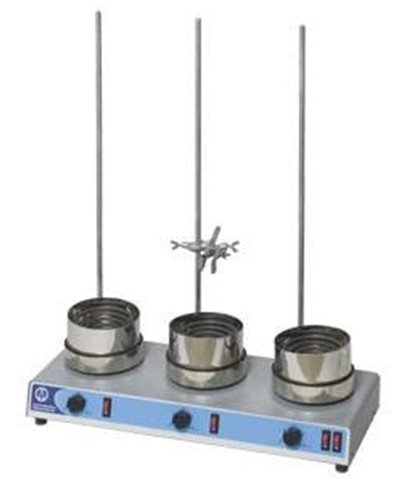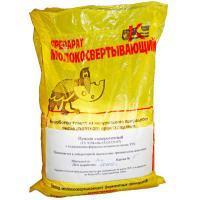What are the alternatives to Russian trade and supply chains in the face of US and EU sanctions?
The Eurasian Economic Union has several free trade agreements under consideration, while trade between RUSSIA and CHINA is growing by more than 30%.
US bilateral trade with Russia is minimal at about $34 billion, which would have little economic impact - Russia's economy is $1.7 trillion.
However, the EU has a much broader trade relationship with Russia, with bilateral trade of around US$219.77 billion. The EU has threatened to hit "essential supplies" to Russia, which in 2021 actually exported just under $80 billion, or about 5% of the total value of the Russian economy. Undoubtedly, there will be a shortage of a large number of goods produced in the EU, to which Russia will no longer have access. Russia has alternative trade corridors that it can access. Plugging the hole in the EU's energy supply will be much more difficult. What are the alternative markets for Russia?
Eurasian Economic Union
Trade
The Eurasian Economic Union (EAEU) is a free trade area modeled on the EU and includes Armenia, Belarus, Kazakhstan, Kyrgyzstan and Russia. Geographically, it occupies the space between China and the eastern part of the EU. On its own , Russia is by far the dominant partner, but bilateral trade is on the rise, with intra-EAEU trade up 33% in the first half of 2021, a trend that looks resilient. There are technical changes that could be made to EAEU trade operations, including improved customs efficiency and lowering some tariff barriers, which could accelerate the improvement of EAEU trade. Russia could use its own free trade bloc trade area and could adjust tariffs to address this issue.
Shrinking EU- China supply chains
It is also important to recognize the importance of the EAEU for the EU. This is a trade corridor between China and Europe - through Russia. Sanctionsimposed by Brussels on Russia could lead to a slowdown or halt in the bilateral trade flows currently operating between China and Europe, as Moscow could suspend or completely stop transit traffic. 50% of all freight rail transport in the EU passes through Russia and Belarus. In 2021, this traffic grew by 30%. China would like to cope with the situation, since reducing trade with the EU is not in its long-term interests. However, Putin and Xi are getting along well and could slow down trade between China and the EU, which would create supply chain problems in Brussels. China also wants to reduce the likelihood of sanctions by switching some supplies from Europe to China to supplies from Russia. This would make strategic sense in many areas of the supply chain, such as agriculture, where Russia is already the world's largest grain producer. This will hit EU farmers hard.
Expanded Free Trade Area of the EAEU
Russia can also speed up the implementation of the numerous free trade agreements that are currently being negotiated with the EAEU. These currently include relatively small but expanding agreements with Iran, Singapore and Vietnam that have largely gone unnoticed. However, Moscow diplomats have been hard at work over the past three years, and negotiations are underway on free trade agreements and tariff cuts with China and India, as well as upcoming free trade agreements with Bangladesh, Cambodia, Pakistan, Indonesia, Mongolia, SOUTH KOREA, Thailand, Bosnia, Israel, Moldova, Egypt, UAE and Uzbekistan are taking steps to conclude agreements in South America. The entire ASEAN bloc is also considering the possibility of concluding free trade agreements with the EAEU,
Such coverage completely negates the potential damage that any US or EU sanctions could cause. Short-term problems with trade and investment in Russia would only hasten these alternatives.
Trade relations Russia - China
Neither Beijing nor Moscow are big fans of Washington, since Beijing is well aware that any sanctions the United States imposes on Russia could subsequently be applied to China, since the US uses such mechanisms to impose its own trade will and foreign policy. 144 countries have signed memorandums of understanding with China, each including trade recommendations. China and Russia are technologically advanced countries, despite US Senator Risch's statement yesterday that "Russia is a gas station masquerading as a sovereign state" - a prospect that is of great concern because it greatly underestimates the Russian economy and its high-tech assets and reflects an outdated attitude debunked by Goldman Sachs back in 2017.
As a result, Beijing wants to improve trade with Russia, with bilateral trade up 35% in 2021 to a record $147 billion. The two countries have set an initial goal of reaching US$200 billion by 2024 and are on track to achieve it. This indicator can be quite easily achieved if the parties reach an agreement to reduce tariffs - in 2018 they signed a non-preferential Free Trade Agreement (through the EAEU).
A free trade agreement with India is also just around the corner - last month Indian Prime Minister Modi met with President Putin in Moscow, Delhi is considering the EAEU market of about 183 million consumers, and Moscow is considering supplying gas, weapons and other goods to the Indian market. with 500 million middle class residents.
Our conclusion should be that Russia is ready for sanctions. Measures such as shutting down SWIFT will cause major short term disruptions, but as I explained here, this will eventually lead to the long term global development of alternatives. User countries such as China and India will view the system as unreliable and consider that the United States is using it as a trade weapon for its own purposes - something SWIFT was never meant to be. It would also hasten a rapid move away from the DOLLAR - Russia and Iran have just announced they will stop using the currency in bilateral trade settlements. Other countries would follow. An alternative payment system, SWIFT, is also likely to be created by merging the Russian digital financial clearing system SPFS and China's CIPS.
Arguments in favor of imposing sanctions on Russia will only hasten the division between East and West. Given that China already has a significant presence in Africa and Latin America, 2/3 of world trade will be in the hands of Beijing and Moscow.



























































